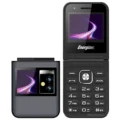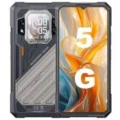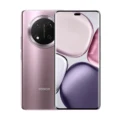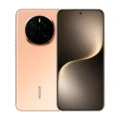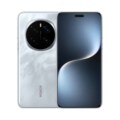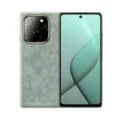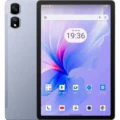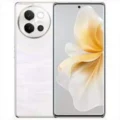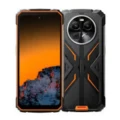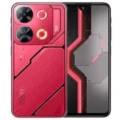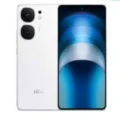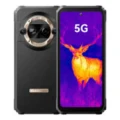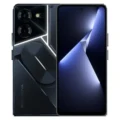Google Pixel 9 Pro XL
- : 16GB RAM Google Tensor G4
- : 6.8" 1344x2992 pixels
- : 5060mAh 37W23W
- : 50MP 4320p
Google Pixel 9 Pro XL: A Leap Forward in Smartphone Technology
A Visionary Design
The Google Pixel 9 Pro XL is a testament to Google’s commitment to pushing the boundaries of smartphone technology. Its sleek, modern design is not just visually appealing but also ergonomically sound. The device feels premium in hand, with a smooth, curved glass back that seamlessly transitions into the aluminum frame. The large, immersive display offers stunning visuals, with vibrant colors and deep blacks.
Unparalleled Performance
Powered by Google’s latest Tensor G3 processor, the Pixel 9 Pro XL delivers lightning-fast performance. Whether you’re multitasking, gaming, or streaming, this device handles it all with ease. The advanced cooling system ensures optimal performance, even under heavy load.
A Camera System That Redefines Photography
Photography enthusiasts will be amazed by the Pixel 9 Pro XL’s cutting-edge camera system. The primary sensor captures stunning details, even in low-light conditions. The telephoto lens offers exceptional zoom capabilities, allowing you to capture distant subjects with clarity. The ultrawide lens expands your field of view, perfect for capturing breathtaking landscapes. So, Google’s computational photography magic takes your photos to the next level, with features like Magic Eraser, Night Sight, and Cinematic Mode.
A Battery That Lasts All Day
The Pixel 9 Pro XL boasts a long-lasting battery that can easily get you through a full day of use. When it’s time to recharge, the device supports fast charging, getting you back to full power in no time. Additionally, the Pixel 9 Pro XL supports wireless charging, making it even more convenient to keep your device topped up.
Pure Android Experience
The Pixel 9 Pro XL runs on the latest version of Android, delivering a pure, uncluttered user experience. So, Google’s timely software updates ensure you always have the latest features and security patches. The device also integrates seamlessly with other Google services, such as Google Assistant, Google Photos, and Google Maps.
Conclusion
The Google Pixel 9 Pro XL is a remarkable smartphone that offers a perfect blend of performance, design, and camera capabilities. Whether you’re a power user, a photography enthusiast, or simply looking for a reliable daily driver, the Pixel 9 Pro XL is sure to impress.
- Do you want to know more about this phone? Visit the official website of the Google Store.
- Still confused while choosing your Smartphone? Go to the store, and choose another one of your choice.
Specs
Network
| 2G Network GSM 850 / 900 / 1800 / 1900 - SIM 1 & SIM 2 (dual-SIM) CDMA 800 / 1900 |
GSM 850 / 900 / 1800 / 1900 |
| 3G Network |
HSDPA 800 / 850 / 900 / 1700(AWS) / 1900 / 2100 |
| 4G Network |
1, 2, 3, 4, 5, 7, 8, 12, 13, 14, 17, 18, 19, 20, 25, 26, 28, 29, 30, 38, 40, 41, 48, 66, 71 - GGX8B 1, 2, 3, 4, 5, 7, 8, 12, 13, 14, 17, 18, 19, 20, 21, 25, 26, 28, 29, 30, 32, 38, 39, 40, 41, 42, 48, 66, 71, 75 - GZC4K |
| 5G Network |
1, 2, 3, 5, 7, 8, 12, 14, 20, 25, 26, 28, 29, 30, 38, 40, 41, 48, 66, 70, 71, 77, 78, 258, 260, 261 SA/NSA/Sub6/mmWave - GGX8B 1, 2, 3, 5, 7, 8, 12, 14, 20, 25, 26, 28, 30, 38, 40, 41, 66, 71, 75, 76, 77, 78, 79 SA/NSA/Sub6 - GZC4K |
| Speed |
HSPA, LTE (CA), 5G |
LAUNCH
| Announced | August, 2026 |
| Status |
Available. Released 2024, August 22 |
BODY
| Dimensions | 162.8 x 76.6 x 8.5 mm (6.41 x 3.02 x 0.33 in) |
| Weight | 221 g (7.80 oz) |
| Build | Glass front (Gorilla Glass Victus 2), glass back (Gorilla Glass Victus 2), aluminum frame |
| SIMs SIM (Subscriber Identity Module) is a small card that contains mobile network subscriber's account information. This allows the phone using the card to attach to a mobile network. The SIM card is most commonly associated with GSM and UMTS mobile networks. Moving a SIM card from one phone to another allows a subscriber to switch mobile phones without having to contact their mobile network carrier. SIM cards can also be used by a phone to store limited amounts of data, such as phone numbers and text messages. |
Nano-SIM and eSIM IP68 dust/water resistant (up to 1.5m for 30 min) |
Display
| Display Type Display Technology => A number of display technologies and types used in mobile phones => TFT (Thin Film Transistor), IPS (In-Place Switching), OLED (Organic Light Emitting Diode), AMOLED (Active-Matrix Organic Light-Emitting Diode), Super AMOLED (an even advanced version of AMOLED), Resistive Touchscreen (Resistive touchscreens contain two layer of conductive material with a very small gap between them which acts as a resistance), Capacitive Touchsceen (Capacitive touchscreen technology consists of a layer of glass coated with a transparent conductor) | LTPO OLED, 120Hz, HDR10+, 2000 nits (HBM), 3000 nits (peak) |
| Size | 6.8 inches, 109.7 cm2 (~88.0% screen-to-body ratio) |
| Resolution | 1344 x 2992 pixels, 20:9 ratio (~486 ppi density) |
| Protection Display Protection => Gorilla Glass is a special alkali-aluminosilicate glass shield with exceptional damage resistance that helps protect mobile displays from scratches, drops, and bumps of everyday use, It is always better to go for a smartphone with Gorilla Glass for that added protection and peace of mind. | Corning Gorilla Glass Victus 2 Always-on display |
PLATFORM
| Operating System OS => Every computer system run on a base software called Operating System (OS). Operating System controls all basic operations of the computer (such as smartphone, PDAs, tablet computers and other handheld devices). The Operating System allows the user to install and run third party applications (apps), apps are used to add new functionality to the device. | Android 14, upgradable to Android 15, up to 7 major Android upgrades |
| Chipset Chipset is a group of integrated circuits designed to perform one or a more dedicated functions, often with real time computing constraints, Popular smartphones are equipped with more advanced embedded chipsets that can do many different tasks depending on their programming. | Google Tensor G4 (4 nm) |
| CPU CPU (Central Processing Unit) mostly known as processors, CPU processes instructions in order to carry out certain functions that make your device operate properly. Processors are often described as the brain of computers, smartphones and tablets, Smartphones and tablets rely on processors to carry out their every task, Processors are an incredibly important factor in selecting any type of computing device, including your smartphone. | Octa-core (1x3.1 GHz Cortex-X4 & 3x2.6 GHz Cortex-A720 & 4x1.92 GHz Cortex-A520) |
| GPU GPU (Graphics Processing Unit) is a single-chip processor designed to rapidly manipulate and alter memory to accelerate the creation of images in a frame buffer intended for output to a display, This includes things such as lighting effects, object transformations, and 3D motion. | Mali-G715 MC7 |
MEMORY
| Card Slot Memory Card Slot is a special slot for inserting a memory card. Memory cards allow you to expand the phone's built-in memory, A memory card (sometimes called a flash memory card or a storage card) is a small storage medium used to store data such as text, pictures, audio, and video, for use on small, portable or remote computing devices such as mobile phones, mp3 players, digital cameras. | No |
| Internal | 128GB 16GB RAM, 256GB 16GB RAM, 512GB 16GB RAM, 1TB 16GB RAM UFS 3.1 |
MAIN CAMERA
| Cameras Specs Today’s smartphones come equipped with a very comprehensive set of camera related specifications. Our smartphone, for many of us, has become our primary camera due to it being the one we always have with us. |
50 MP, f/1.7, 25mm (wide), 1/1.31", 1.2µm, dual pixel PDAF, OIS 48 MP, f/2.8, 113mm (periscope telephoto), 1/2.55", dual pixel PDAF, OIS, 5x optical zoom 48 MP, f/1.7, 123˚ (ultrawide), 1/2.55", dual pixel PDAF, |
| Video | 8K@30fps, 4K@24/30/60fps, 1080p@24/30/60/120/240fps; gyro-EIS, OIS, 10-bit HDR |
| Camera Features | Multi-zone Laser AF, LED flash, Pixel Shift, Ultra-HDR, panorama, Best Take, Zoom Enhance |
SELFIE CAMERA
| Cameras Specs Today’s smartphones come equipped with a very comprehensive set of camera related specifications. Our smartphone, for many of us, has become our primary camera due to it being the one we always have with us. |
42 MP, f/2.2, 17mm (ultrawide), PDAF |
| Features |
HDR, panorama |
| Video | 4K@30/60fps, 1080p@30/60fps |
SOUND
| Loudspeaker | Yes, with stereo speakers |
| 3.5mm jack |
No |
COMMS
| WLAN |
Wi-Fi 802.11 a/b/g/n/ac/6e/7, tri-band |
| Positioning |
GPS (L1+L5), GLONASS, GALILEO, BDS, QZSS, NavIC |
| Bluetooth Bluetooth is a wireless communications technology for exchanging data between mobile phones, headsets, computers and other network devices over short distances without wires, Bluetooth technology was primarily designed to support simple wireless networking of personal consumer devices. | 5.3, A2DP, LE, aptX HD |
| Infrared Infrared connectivity is an old wireless technology used to connect two electronic devices. It uses a beam of infrared light to transmit information and so requires direct line of sight and operates only at close range. | |
| USB | USB Type-C 3.2 |
| NFC NFC (Near field communication) is a set of standards for smartphones and similar devices to establish peer-to-peer radio communications with each other by touching them together or bringing them into proximity, usually no more than a few inches. | |
| Radio |
Features
| Sensors Sensors are electronic components that detects and responds to some type of input from the physical environment. The specific input could be light, heat, motion, moisture, pressure and location, The output is generally a signal that is converted to use in computing systems, a location sensor, such as a GPS receiver is able to detect current location of your electronic device. |
Fingerprint (under display, ultrasonic), accelerometer, gyro, proximity, compass, barometer, thermometer (skin temperature) Ultra Wideband (UWB) support Satellite SOS service Circle to Search |
BATTERY
| Battery Type Battery Type => Cell phones run on various kinds of batteries depending on the manufacturer, phone size or shape and features. There are basically four types of cell phone batteries => Lithium Polymer, Lithium Ion, Nickel Metal Hydride and Nickel Cadmium. | Li-Ion (Lithium Ion) |
| Capacity Battery Capacity is a measure (typically in Amp-hr) of the charge stored by the battery, and is determined by the mass of active material contained in the battery. The battery capacity represents the maximum amount of energy that can be extracted from the battery under certain conditions. | 5060 mAh |
| Placement | non-removable |
| Charging The functionality responsible for recharging batteries in portable devices, such as mobile phones, significantly influences both battery lifespan and the practicality of daily product usage.The charging process, encompassing factors like voltage, current, and completion actions, is contingent upon the battery's size and type.Contemporary battery chargers dynamically adjust charging parameters based on the battery's current charging state. Charging an empty battery poses no safety risk, allowing for a quicker charging process. Consequently, many charging speed benchmarks, including ours, specify the battery level achieved after a 30-minute session on an empty battery.Standard chargers with a power output of 5V/1A, equivalent to 5W, serve as a baseline, with anything surpassing this speed classified as quick or fast charging. | 37W wired, PD3.0, PPS, 70% in 30 min (advertised) 23W wireless (w/ Pixel Stand) 12W wireless (w/ Qi compatible charger) Reverse wireless |
MISC
| Colors |
Porcelain, Rose Quartz, Hazel, Obsidian |
| Model | GGX8B, GZC4K, GQ57S |
| SAR EU Each GSM handset has a radio transmitter and receiver in order to operate in the wireless GSM network. That transceiver is manufactured so that when used next to the ear and when worn on the belt, it won't exceed the limits for exposure to radio frequency energy set by the authorities.The authorities in question here are the Federal Communications Commission (FCC) of the U.S. Government, Industry Canada of the Canadian Government (IC), and the Council of the European Union. |
0.99 W/kg (head) 1.40 W/kg (body) |
| Price | $ 790.00 / € 1,020.76 / £ 999.00 |
TESTS
| Display | 2365 nits max brightness (measured) |
| Loudspeaker | -25.5 LUFS (Very good) |
| Battery (new) | Active use score 12:32h |
Reviews
Disclaimer Note
We strive to maintain accurate and up-to-date content on our website for general information purposes only. Please refrain from using the material for business, legal, or any other decisions.


